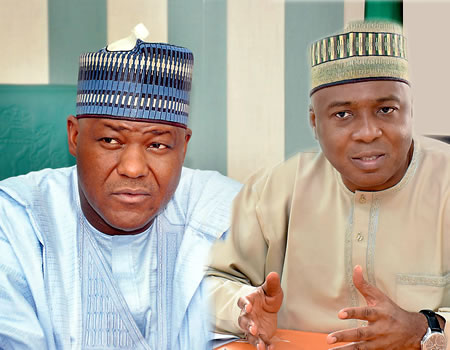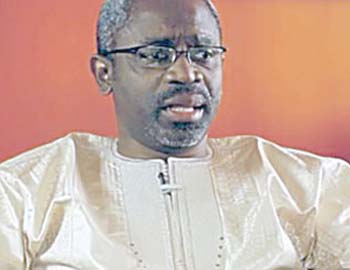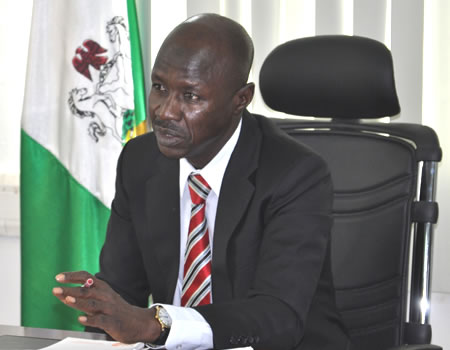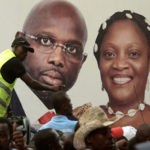
Executive-legislature relationship has always been a challenge in participatory democracy. Group Politics Editor, TAIWO ADISA, with reports from jACOB SEGUN OLATUNJI and KOLAWOLE DANIEL assesses the relationship between executive and legislature in the outgoing year.
THE Executive and Legislature are always engaged in cat and mouse relations in most democracies. And the Nigerian situation has never really been different, even when the ruling party maintains an
overwhelming control of the chambers. The story of the 8th National Assembly has however been peculiar. Its journey in 2015 took off on an acrimonious note, as the ruling All Progressives Congress (APC) was pitted against members of the National Assembly who were bent on choosing their own leaders.
That division has only been managed ever since. When the rift simmered down on the party’s axis, the feud got domiciled between the executive and the legislature, each looking suspiciously at the other. The rift got to a head in September 2015, when the Federal Government dragged the Senate President, Senator Bukola Saraki, who is also the chairman of the National Assembly, to the Code of Conduct Tribunal on the allegation of false asset declaration.
Somehow, the lawmakers patched up the relationship and avoided a total breakdown, but since then, the centre has not really held between the two institutions.
This year, 2017, started with a huge carryover of 2016 as the process of the passage of the 2017 budget was prolonged principally by the delay in presenting the budget estimates and secondly by the undue rivalry between the legislature and executive. The rivalry over budget passage procedures dragged the 2017 budget to mid-year, thus ensuring that the implementation was well hampered even before take-off.
Power of appropriation
The executive and the legislature have always haggled over the power of appropriation as contained in the 1999 Constitution. While the executive would insist that the power to propose projects and assign funds for same rests with it, the legislature has always insisted that the power of the purse belongs to the people, which it represents. The legislature had always relied on Section 80 (1, 2,3 & 4) of the constitution to support its pre-eminence claim on the power of appropriation. But the executive often finds a leeway provided in Section 82 of the same constitution, which allows it to spend public funds up to six months in the absence of the Appropriation Act.
In 2017, the crisis over the power of the purse boiled over as the budget, which was presented to the National Assembly in December 2017, did not get signed into law until six months after. There were claims of padding and altercations about introduction of new subheads by the legislature. The back and forth argument ended in June when the Acting President, Professor Yemi Osinbajo signed the budget into law.
The Magu controversy and power of appointments
The executive and the legislature also haggled over the propriety of appointments in acting capacity made by the President in the outgone year. The striking appointment in this cadre has to do with the appointment of Mr Ibrahim Magu as the Acting Chairman of the Economic and Financial Crimes Commission (EFCC). Magu’s confirmation was rejected by the Senate in December 2016 and again in March 2017.
But the lawyers’ claim notwithstanding, the National Assembly explained that the law setting up the EFCC mandates the president to make appointments into the board only after confirmation by the Senate. They insisted that as far as the law is still in force, the chairman of the Commission must be confirmed by the Senate. The issue remains a stalemate till date.
The controversy went deeper than the usual hubris over budget as it led the Senate to “down tools” in April of that year. The lawmakers declared that they could not continue to pass resolutions that would not be respected as they announced the suspension of plenary over the failure of President Muhammadu Buhari to respond to resolutions rejecting the nomination of Ibrahim Magu.
There were also claims that the executive would head to the Supreme Court to settle the interpretation of Section 171 as raised by the lawyers but no action has yet to be taken in that regard.
The Magu controversy remains at the heart of the ill-feelings between the executive and the legislature right now. up till now, the Senate has refused to act on all the nominations sent to the chamber by the president since October. As a result, several boards of parastatal agencies have remained vacant as those nominated are yet to get Senate’s nod.
While speaking in April, following the announcement of the suspension of screening of the presidential nominees, Senate spokesman, Senator Sabi Abdullahi said: “All the Senate has said is that we passed resolution and the resolution was rubbished. If our resolution was rubbished, why are we passing another resolution? The Senate has mandated its president to discuss with the president of the Federal Republic to resolve whatever is happening to the resolution.”
Though the remainder of the Resident Electoral Commissioner nominees were later cleared by the Senate, many other nominations that came after that have suffered the scorn of the lawmakers. Such nominees
include those into the board of the Federal Road Maintenance Agency (FERMA), the Central Bank of Nigeria (CBN), Niger Delta Development Commission (NDDC) and the Independent National Electoral Commission (INEC).
Peace moves gone awry
As the no love lost relationship between the executive and the legislature became apparent, the Presidency made moves to salvage the situation in the last quarter of 2017. There were feelers that the 2018 budget might be dead on arrival if the cat and mouse relationship continued and that the lawmakers might “butcher” the new budget anyhow. The executive, thereafter, mooted the idea of a peace deal between it and the leadership of the National Assembly ahead of series of the debate in the chambers of the Medium Term Expenditure Framework (MTEF) and the Fiscal Strategy Paper (FSP). But then there was a snap. Security operatives at the entrance of the Presidential Villa stopped the bus conveying the National Assembly leadership from entering the complex. They claimed that only the Senate President and the Speaker of the House of Representatives were to be allowed entry. The 20 leaders of the legislature turned back as the two presiding officers insisted on entering the Villa as one body. But a quick intervention of the president, who dispatched his Chief of Staff, helped to douse the tension and prevented further strain in the relationship between the two arms of government.

The meeting later held a week after and it helped to lay the foundations for a smooth presentation of the 2018 budget document.
NASS and presidential aides
One emerging issue that became noticeable in 2017 is the widening gap between legislative structures and the Presidential aides on National Assembly. In the past, presidential liaisons in the legislature were always in chubby relationship with the lawmakers. They were therefore in position to reduce the intensity of crisis on occasions.
But in recent times, silent grumbles have started over the claims that the aides are misinterpreting their roles and, in some instances, attempting to usurp the roles of the Clerk to the National Assembly during Joint sittings. The bureaucracy of the Assembly, which is usually taciturn recently, started getting uneasy over the conduct of the Presidential aides at screening sessions and at joint sittings. They contended that the attitude of the aides could go a long way to negatively affect smooth executive/legislative relations.
A source in the legislature had described the trend thus: “Before now, presidential aides on legislative matters ensured that a peaceful and harmonious relationship existed between the two arms. They guide, give advice and direct accordingly, so as to eliminate unnecessary frictions, suspicions and mischief.
“The aides discharged their responsibilities without being noticed by the public. They are strategic yet effective. They demonstrated sound knowledge of the legislature based on their individual experiences and knowledge of the institution of legislature.
“Recently, however, some representatives of the executive appear to speak and act as though they were expressly directed by the president. They exhibit attitude that creates suspicion between the arms of government and claim knowledge of issues they really lack knowledge about. They tend to hijack the functions of the Clerk during Joint sitting and show overbearing conduct during screening of candidates at the Senate committees.”
Constituency projects for lawmakers
In 2017, another source of tension between the legislature and executive is the running battle over quest for substantial implementation of constituency projects of the lawmakers. The Constituency Projects are designed as a take home for the lawmakers to showcase their impact in their respective constituencies.
Through this channel, the Federal Government sets aside the sum of N100 billion for projects that would be executed in the 469 Senate and federal constituencies in the country. The lawmakers are to nominate the projects they feel represent the pressing needs of their people while the Ministries, Departments and Agencies (MDAs) are to execute the project.
But there have been arguments as to the failure of the executive to release adequate funds for the projects so nominated by the lawmakers. It’s a source of controversy which will not go away. With less than 15 per cent of performance ratio of the projects in 2017, the lawmakers have called for complete carryover of the projects to the 2018 budget.
As for the House of Representatives, 2017 does not present a different experience from that of the Senate. The lawmakers at the inception of the Eighth National Assembly in 2015 had set out a legislative agenda believed to guide its operations. But like the Senate, the agenda ran into trouble with the leadership selection process.
Right Honourable Yakubu Dogara, who emerged the Speaker, was not the choice of the ruling party APC. Just as in the case of Saraki in the Senate, he emerged against the wish of his party and then faced some backlash. That also affected executive, legislature relations.
At inception, the House set out an ambitious Legislative Agenda, which is to serve as a compass for its legislative activities for four years (2015 – 2019), in what it called the quest to deepen democracy in Nigeria.
The lawmakers had assured that “Nigeria’s democracy remains critical and important. The Eighth House of Representatives will assert its role in providing leadership in the areas of accountable and transparent government, citizen’s engagement, as well as constituency representation.
“The House of Representatives will collaborate with its counterpart in the Senate and other arms of government to legislate for the common good of the Nigerian people. Our legislative activities will cover critical spheres of life in Nigeria. The House will legislate to achieve reforms in Nigeria’s national economy and development, tackle poverty, unemployment, confront the scourge of corruption, terrorism and security challenges in the country.
“The House will also give priority to green legislations to address environmental challenges such as desertification, erosion and pollution. The 8thHouse of Representatives will also work assiduously to improve the governance process in Nigeria by legislating to cut the cost of running government, reduce wastage and tackle National Revenue leakages. The House commits to playing its part in rescuing Nigeria from the clutches of hunger, poverty, disease, social, economic, political and infrastructural quagmire.

“The Eighth House of Representatives, as a peoples’ parliament, will be sensitive to public demands transparency and accountability not just by the House of Representatives but also by government at all levels. Our legislative actions would therefore seek to build public confidence and trust and be responsive to citizens’ questions regarding the conduct of legislative business. The House will work for public good and serve as the institution that defends the rights of the people to an accountable and transparent government.”
How much of the above was the legislature able to pull through in the course of 2017 is a question that will be answered in two fronts, the people and the house itself.
Speaker Dogara answered part of the question when he gave a scorecard to the effect that the 8th House has so far passed 159 Bills out of the 1055 bill presented for first reading between 2015-2017 (November). 30 of the Bills have so far received presidential assent while six of the bills were vetoed by the president.
Besides that, the Eighth House has conducted more than 50 investigative hearings some of which include the investigations on the award of contract for the rehabilitation of Nigerian Railways; Installation of CCTV Cameras in Abuja and Lagos, alleged $17 billion stolen from undeclared crude oil and LNG exports to global destinations; theinvestigative hearing on Centenary City Project; Pre- Shipment investigation and the Amnesty programme among others.
For the legislature, the year 2017 is only but a carryover of2016, which is rooted in the events of June 2015 as far as its relationship with the executive is concerned.
It, however, appeared that having fought and sustained bruises on either side, the executive and the legislature are beginning to realise the essence of collaboration. That was the essence of the parley between the President and the leadership of the legislature in October. But the concerns are forever present. Speaker Dogara, while speaking at the November 7, 2017 joint sitting for the presentation of the 2018 budget said that the needed consultation between the two arms of government was lacking during the budget preparation stage. Perhaps, the executive needs to imbibe the fact that separation of powers emphasises interdependence of powers rather than the supremacy of one arm over the other.






